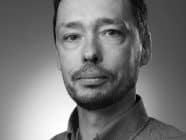On a crisp autumn day a group of academics gathered in Berlin’s Potsdamer Platz to discuss what they could do to protect the future of journalism.
Potsdamer Platz was one of Europe’s greatest meeting places and it seemed a fitting location to bring together researchers and professors from around Europe, to discuss ideas and lay the foundations of the European Journalism Observatory’s nascent doctoral school.
The idea behind the project is to create an interdisciplinary, comparative approach to media studies, generating work that is of direct relevance to the media industry itself and then use the EJO network and other outlets to disseminate the research, again, making sure it reaches other academics and the journalists who may benefit from the information.
It’s an original approach that puts the practitioners in direct contact with the academics who study them.
Rasmus Kleis Nielsen, associate professor of communications at Roskilde University (RUC) in Denmark and (part-time) Research Fellow at the Reuters Institute for the Study of Journalism at the University of Oxford in the UK gave his thoughts on why it matters.
“Journalism studies is a science. As a scientist, I have no professional stake in the success or failure of journalism,” he said. “But journalism studies is also a social science. It is not just the disinterested pursuit of truth but also part of human affairs. We play a part in how journalists see themselves, how journalism as a human affair develops.”
“Whatever the motivations, most of us in this room broadly accept that journalism, warts and all, with its limitations, is, on balance, in western democracies, a benefit for democracy.” And the EJO wants to do what it can to make sure this journalism survives.
Nielsen argues that much work on media studies in the English language works on an assumption that eventually, “all the world will end up looking like America. The evidence for that is at the very best mixed.”
The EJO will focus on a comparative approach to media studies, looking an structural issues that help us see the various direction journalism is going in different countries.
Stephan Russ-Mohl, professor of journalism and media management at the University of Lugano and the main driving force of the EJO teamed up with Professor Susanne Fengler at the Erich Brost Institute for International Journalism at the University of Dortmund, and Robert Picard at the Reuters Institute for the Study of Journalism at the University of Oxford to build the project.
The first major event was a conference, in Potsdamer Platz on September 18/19, organized with the backing of the Daimler Benz foundation, which helped fly researchers to Berlin from all over Europe, and provided space in in the elegant Haus Huth: the only building in Potsdamer Platz to have survived both the war and German division and which now houses the Daimler Contemporary Art Collection, to discuss their ideas.
The young researchers brought new research and new methodologies to the table. There was a discussion on how Wikileaks is changing the definition of journalism, a neat computational study on whether German newspaper Bild derived any benefit from its scoop that led to the resignation of German president Christian Wulff.
The Doctoral School of the European Journalism Observatory would fund young researchers for up to three years. In this time it would expect them to acquire their PhD. They would be based at partner institutions but would also receive supervision and guidance from within the EJO network and would participate in conferences, discussions and seminars with each other.
“The goal is to build a language between the language of journalism studies and the language of economic analysis. To find a new research perspective by combining those two fields,” said Fengler. “In media practice, economics strongly affects the way journalism functions but in media research there is a gap. There is the field of media economics, but we want to deal with the practice of journalism according to economic principles. We think this doctoral school would be unique. It would create new, interdisciplinary fields, new business models, new distribution channels, and hopefully develop a model for sustainable quality journalism.”
Tags: Daimler Benz foundation, doctoral school, Erich Brost Institute for International Journalism, European Journalism Observatory, Journalism, Media research, Oxford University, Rasmus Kleis Nielsen, Reuters Institute for the Study of Journalism, Robert Picard, University of Dortmund














































